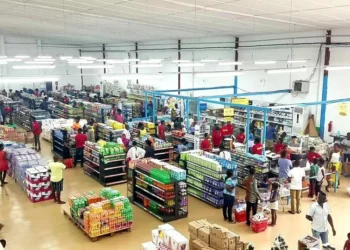Music plays a significant role in Ghanaian culture, with a rich history of traditional and contemporary music genres that reflect the country’s diverse cultural heritage.
However, there is a growing concern that the majority of Ghanaian songs lack spiritual value, focusing instead on materialism, hedonism, and superficial themes.
Many critics argue that contemporary Ghanaian music has strayed from its roots, with an increasing emphasis on commercial success and mainstream appeal at the expense of spiritual and moral values.
This trend is particularly evident in popular genres such as Hiplife, Afro Beats, and Dancehall, which often glorify wealth, fame, and material possessions.
The lack of spiritual value in Ghanaian music is seen as a reflection of broader societal trends, with an increasing emphasis on materialism and consumerism in Ghanaian culture.
This has led to a situation where many artists prioritize commercial success over artistic integrity, producing music that is shallow, repetitive, and lacking in substance.
Ghanaian vocalist, Enam has stated that most songs released by artists today sound plain and lack spiritual value.
Enam, who recently released her single ‘Libation’, believes that music is one of the most powerful instruments for connecting with others in a variety of ways.
“Imagine watching a movie without music or sound, or attending church without hearing music. Music is intended to trigger something deep within us. Something we call spirituality, and when you tap into it, you discover methods to manipulate the world to your will. This bending emerges in a variety of ways, including the ability to impact one’s own life.
“Music reaches beyond the visible to impact our consciousness, and this impact can be helpful or harmful. I see music as a mediator of spiritual life. Music has become part of everyday life, and I feel most songs lack spirituality. Some artists are only concerned with the rhythmic aspect of the sound and how danceable it is, but forget the spiritual connotation.”
Enam
The lack of spiritual value in the majority of Ghanaian songs is a cause for concern, as it reflects a broader trend towards materialism and superficiality in Ghanaian culture.
There is a growing call for Ghanaian artists to prioritize spiritual and cultural values in their music, using their platform to inspire, uplift, and connect with audiences on a deeper level.
By doing so, Ghanaian artists help to preserve and promote the rich cultural heritage of Ghana through music that is both meaningful and spiritually fulfilling.
Robert Urge for Immediate Reforms in the Creative Sector

The creative sector in Ghana is facing a crisis of financial insecurity, with many artists struggling to make ends meet.
This has been exacerbated by the impact of the COVID-19 pandemic, which has led to the closure of galleries, cancellation of events, and a decline in sales of artwork.
In response to this dire situation, there is a growing call for immediate reforms in the creative sector to address the financial insecurities faced by Ghanaian artists. These reforms are seen as essential to ensure the survival and growth of the creative industry in Ghana.
Many artists in Ghana struggle to make a living from their art, as they often do not have access to funding or grants to support their work.
This has led to a situation where many artists are forced to take on other jobs to make ends meet, which can limit their ability to focus on their creative practice.
Public Relations Officer for Charterhouse, Robert Klah urged for immediate reforms in the creative sector to address the financial insecurities faced by Ghanaian artists.
“Royalties, because these are their rightful earnings. What we need is a policy to support this, and for it to be enforced, and any document, any bill whatsoever to be enforced, so that at the end of the day, what is due these people could be realized.
“If we have the royalties fixed, in my encounters with people in South Africa, they clearly explained how they now use this as a basis for pension contributions. This, you have a consistent inflow of funds. A portion of these funds is allocated for pension contributions.”
Robert Klah
There is a need for increased funding and support for artists in Ghana, including grants, scholarships, and other forms of financial assistance.
This could help to alleviate the financial pressures faced by artists and allow them to focus on their creative work and contribute so much to the cultural life of the country.
READ ALSO: Government’s Free SHS Bill Proposal Misses Priority



















